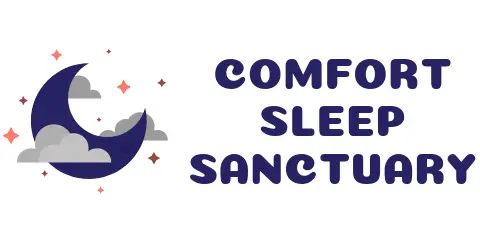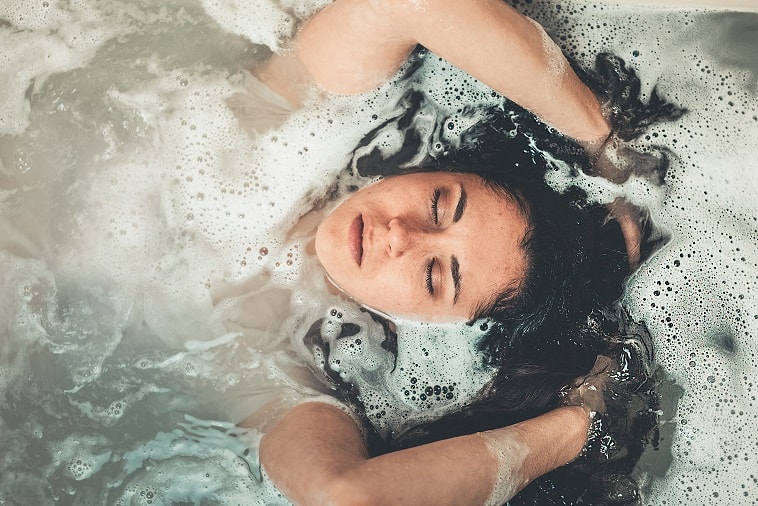Table of Contents
**This page contains affiliate links and I will be compensated if you make a purchase after clicking on my links**
Photo by Craig Adderley from Pexels
It has long been known that a warm bath before bed can help you fall asleep.
In a recently published meta-analysis reviewing thousands of published studies, authors Haghayegh, et. al. (2019) found that a bath 1-2 hours before bedtime, for as little as ten minutes, significantly shortened “sleep latency” or the time it takes to fall asleep. In addition, an improvement was also seen in sleep quality, along with sleep efficiency, or the amount of time you stay asleep while in bed.
(A warm shower before bed should also work.)
I’m in!
But like most of you, I prefer to add things to my bath, usually with a relaxing scent. And burn a pleasant-smelling candle.
Am I getting any additional benefit from my added “seasonings”?
One of my favorite additives is Epsom salt, which is very inexpensive.
Will adding Epsom salt to my bath help me fall asleep faster than the bath alone?
- Maybe? The biggest benefit is probably from the hot bath itself, and perhaps other additives (see below)
What is Epsom salt?
Epsom salt is magnesium sulfate.
For those who remember high-school chemistry, yes this is a salt. But it’s not the table salt you put on your food. That would be sodium chloride.
Epsom salt is a white flakey powder. You can buy it almost anywhere, including your local drug store and your favorite online store.
Simply throw a cup or two into your bath, for a “softer” feel.
According to the label, it’s a “soaking aid for minor sprains and bruises.”
Don’t drink your bathwater. Epsom salt is also a treatment for constipation (when used according to the package label).
The benefits of balneotherapy
Using Epsom salt in your bath partially replicates soaking in a mineral hot spring. This practice, termed balneotherapy, has been around for millennia.
Mineral compositions vary, but one of the most famous places to soak is in the Dead Sea, located between Israel and Jordan. The Dead Sea has a high concentration of salt (yes, the sodium chloride version), plus calcium chloride, potassium chloride, and magnesium chloride.
Other renowned places to soak may contain high levels of sulfur (“sulfur baths”) or mineral-laden mud (“mud baths”).
Balneotherapy has been used to treat a variety of chronic inflammatory diseases, including osteoarthritis, rheumatoid arthritis, fibromyalgia, and skin disorders such as atopic dermatitis and psoriasis.
Unfortunately, it’s difficult to design a study with a proper control, where subjects bathe without the addition of minerals.
Most of the studies on the benefits of balneotherapy for rheumatoid arthritis are considered questionable. And the data supporting a benefit for other conditions are not much better.
Indeed, the consensus is that soaking in hot water is good, but the benefit of salt additives is unknown.
It should be emphasized that balneotherapy may complement, but shouldn’t replace, conventional medical treatment for these serious disorders.
Of course, balneotherapy has also been studied in sleep. A 2014 study was conducted at the Balneario San Andrés, located in the city of Jaén, in the south of Spain. It was found that elderly adults partaking in regular baths had a significant improvement in pain, mood, sleep, and depression.
But again, it’s unclear whether the additional minerals had any benefit over the hot water alone.
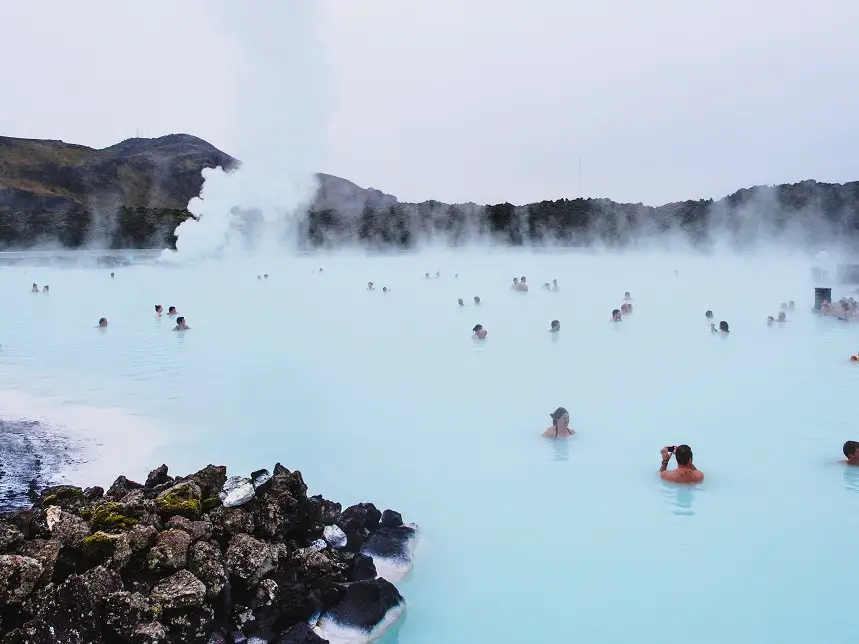
Photo by Jeff Sheldon on Unsplash
The benefits of magnesium on sleep
Many of those hot spring baths, including your Epsom-salt bath, contain magnesium.
Magnesium is thought to help with sleep.
Indeed, in a study by Abbasi, et al. (2012), elderly subjects were given supplements of magnesium and had increased sleep time and decreased latency of sleep onset.
It was noted that the elderly tend to be deficient in many important nutritional minerals, including magnesium. It’s unclear if magnesium supplements would be as effective in someone with no mineral deficiency.
But what about bathing in magnesium?
The hypothesis is that magnesium, and other minerals found in hot springs, might be absorbed through the skin.
Although this may affect the skin itself, “trans-dermal” absorption of magnesium is questionable. The few studies conducted have been of dubious quality.
For example, a study conducted in Birmingham UK is often cited on the internet. Nineteen individuals took regular Epsom-salt baths and volunteered blood and urine samples to measure magnesium levels.
Yes, plasma (blood) levels of magnesium levels rose significantly over the course of the study. However, there were no controls, or subjects taking baths without Epsom salt.
And this study was published by the “epsom salt council”, not a peer-reviewed journal.
So maybe?
Additional bath additives that may help with sleep
Epsom salt isn’t the only thing I throw in the bath.
A long list of bath salts, bath bombs, bath oils, bath gels, body washes, and bubble bath of your favorite scents and ingredients are available.
For a bit more money, you can even purchase fancy Epsom salt with its own special additives.
Plus, scented candles.
Most of these ingredients are intended to be inhaled for their scent.
Yes, they all smell nice, but do any have proven benefits, especially sleepiness?
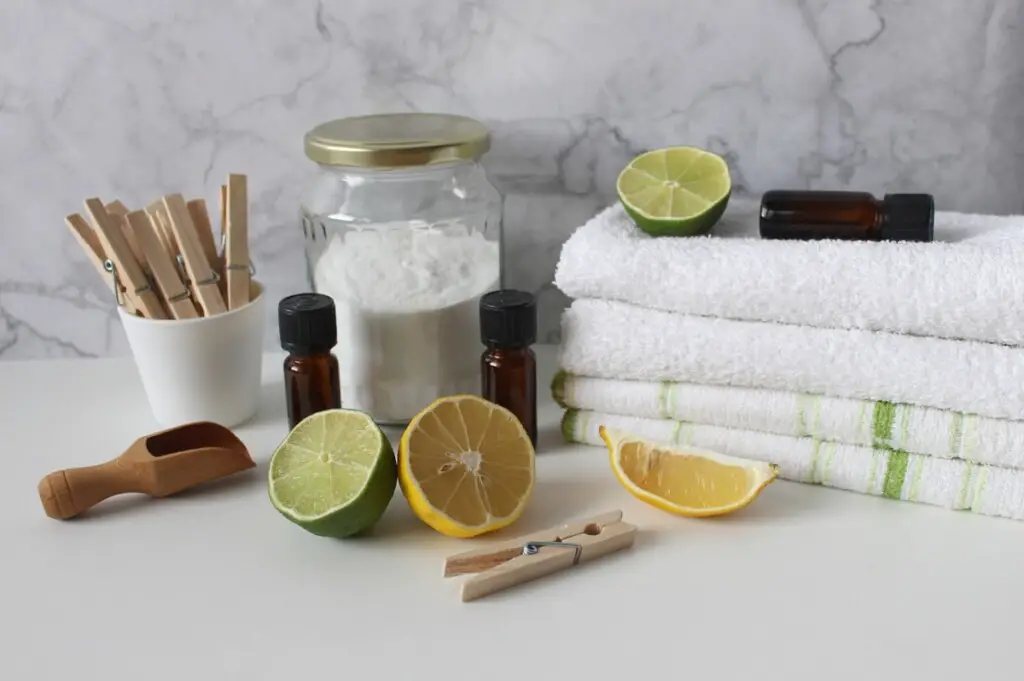
Image by Monfocus from Pixabay
Safe use of essential oils in the bath
One option is to use essential oils in your bath.
As these are very concentrated, extra caution is required.
- Don’t add essential oils directly to your bath. Dilute 3-12 drops in one tablespoon of carrier oil. Recommended oils include jojoba, olive, coconut, or sunflower oil. Or just simple vegetable oil. Without this precaution, concentrated essential oils will stick to other oily things, like your skin or mucous membranes. Ouch.
- Alternatives to carrier oil include shampoo, shower gel, and castile soap. Epsom or other salts can be used in your bath, but are NOT good carriers, as they immediately dissolve in water.
- Because you added oil, be careful of your slippery tub
- To maintain the scent, add diluted essential oils after running the bath and turning the water off
- Some essential oils are very irritating to the skin. Avoid oils such as cinnamon (cassia).
- If skin irritation is a concern, simply put a few drops on a cotton ball or a washcloth and place near your head, outside the bath
What if you aren’t big on baths?
I love baths but I understand many of you are shower people. Fear not, there are other ways to enjoy your scents.
You can spray a bit on your pillow, or place a few drops of concentrated scent on your wrists before turning in.
(Note, some essential oils may be irritating if placed directly on your skin. Follow the label instructions. You may need to dilute it first in a carrier oil. Test out a single drop first.)
Essential oils can also be incorporated into your pre-bedtime shower routine. Turn your shower into a spa using one of the following options.
- Lightly spray your shower wall
- Add several drops on a cotton ball, washcloth, or in a “steam cup” of water and place on a shower shelf or caddy
- Use a waterproof shower diffuser. (Yes, it’s a thing.)
- Fill a tea diffuser or tea bag with your Epsom salt plus essential oil and hang in your shower
- Purchase or make “shower bombs” or “shower steamers”. Like “bath bombs” these disintegrate releasing a scent.
A word of caution about your beloved pets
Many of the essential oils of the plant materials listed below may be relatively non-toxic to humans (when used correctly) however they may be HIGHLY TOXIC to both dogs and cats.
Unless you have a pet that likes to drink large quantities of your bathwater, this probably won’t be an issue.
However, many of these scents may also be available as room sprays or placed into a room diffuser, such as a humidifier.
As a result, diffused essential oils could either be inhaled or land on surfaces where you pet walks or sleeps. The oils can then be ingested when your pet cleans their fur.
Because cats and dogs lack the critical liver enzymes to break down these chemicals (yes, they are chemicals), toxicity, including liver damage, may result.
So only diffuse essential oils if you have no pets, or keep it contained to a room where pets are completely banned.
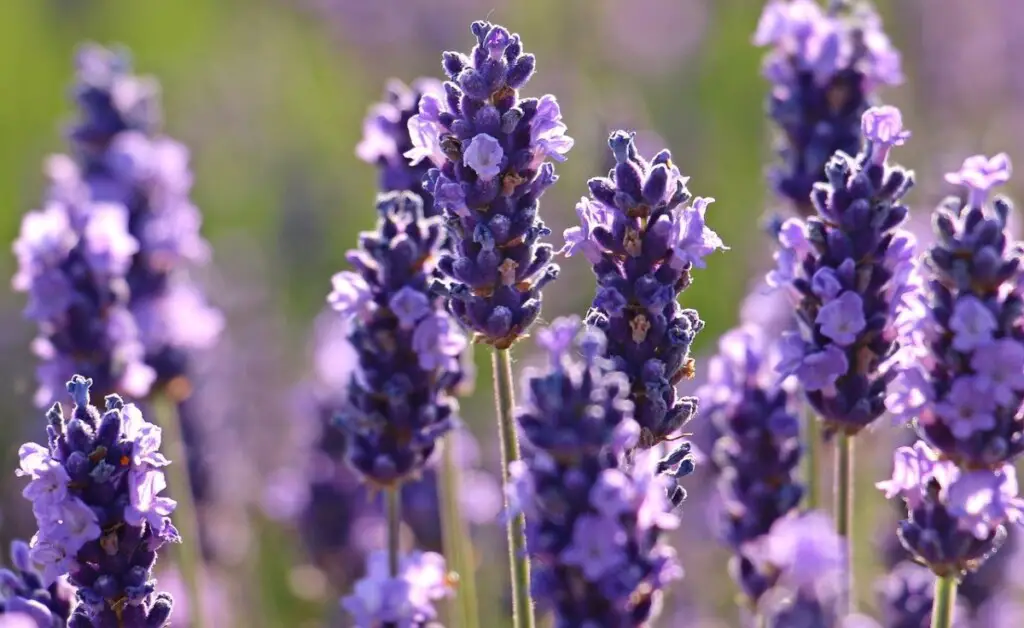
Image by S. Hermann & F. Richter from Pixabay
Lavender
One of the most well-known scents for aiding sleep is lavender. Unlike many of the scents listed below, there is actual scientific evidence supporting the benefits of lavender for sleep.
Lavender, from the plant Lavandula angustifolia, may also be beneficial in treating hair loss (alopecia), anxiety, canker sores, depression, menstrual pain, fall prevention, and pain after surgery.
In a recent review of the scientific literature, Roozbeh, et. al. (2019) found that lavender, either ingested or inhaled, had a positive effect on menopausal and elderly women. Sexual desire, heat flushes, and psychological and physical symptoms, including sleep, were all improved.
How does lavender work?
Silexan™ is an oral formulation derived from lavender oil. This supplement has been found to reduce anxiety.
In a study by Seifritz, et. al. (2019), subjects were given either Silexan™ or a placebo. Silexan™ significantly improved anxiety, and as a secondary benefit, improved sleep. In other words, reduced anxiety from the Silexan™ was associated with better sleep.
Most of the time insomnia is due to the anxiety you feel about not falling asleep.
Therefore, lavender probably doesn’t act like a sedative to make us sleepy. It simply relaxes us.
Bergamot
Bergamot is a bitter extract from the rind of the fruit of Citrus bergamia that resembles an orange. Because of this, sometimes it’s referred to as bergamot orange.
It is used as a flavoring in Earl Grey tea, and supplements have recently been shown to lower cholesterol. Side effects of taking supplements are unknown at present.
There is some limited data that when inhaled, it may reduce anxiety and stress. Which, again, would be expected to help with sleep.
Do not put bergamot in your bath, as it can cause skin irritation, including rash. In addition, it can cause cancer when exposed to the sun. (It was a component of sunscreen until 1995, no doubt contributing to cases of malignant melanoma.)
Cedarwood
As the name implies, Cedarwood is derived from the needles, leaves, bark, and berries of the cedar tree.
In rats, an ingredient of cedarwood, called Cedrol, was found to act as a sedative when inhaled.
Studies in humans are limited. However, a study by Dayawansa, et. al. 2003, found that inhalation of Cedrol significantly decreased heart rate and blood pressure, consistent with a relaxing effect.
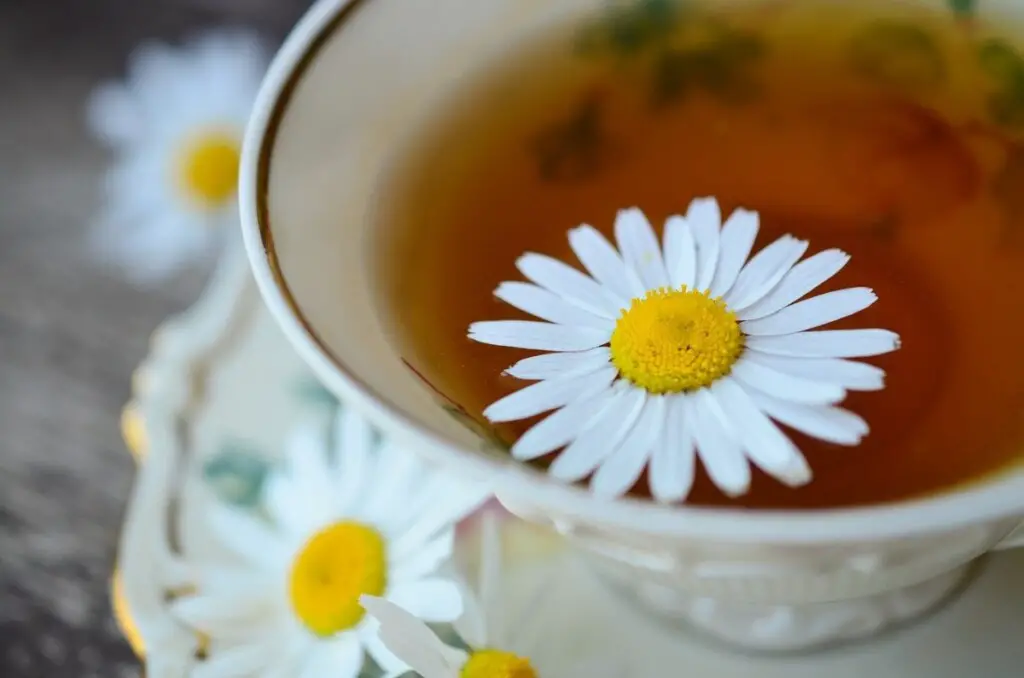
Image by congerdesign from Pixabay
Chamomile
Chamomile, a relative of the daisy, has long been an ingredient in “SleepyTime®” and other teas designed for bedtime.
It is available in two varieties, either as German chamomile (Matricaria chamomilla) or Roman chamomile (Chamaemelum nobile).
In addition, chamomile has been used to treat a variety of gastrointestinal (stomach) issues. The quality of scientific evidence varies, but German chamomile may possibly be effective in the treatment of colic, diarrhea, and heartburn, as well as anxiety.
With regard to sleep, a 2017 study by Adib-Hajbaghery, et. al. found that ingesting capsules of chamomile vs placebo significantly improved the sleep quality in a group of elderly people.
Research on inhaled chamomile has been limited.
One caution, if you have a ragweed allergy, you may also be allergic to chamomile.
Clary Sage
Clary sage, or Salvia clarea, has also been studied for its relaxing effect.
In a 2013 study by Seol, et. al., inhaled clary sage was compared to either lavender or a control, in female patients undergoing a stressful medical test for their urinary incontinence.
Compared to the control group, the group inhaling clary sage had a significant decrease in blood pressure and breathing rate, consistent with being more relaxed.
Interestingly, the clary sage did better than the lavender. In this study, the inhaled lavender increased blood pressure.
It’s unknown whether this relaxing effect translates to better sleep.
Neroli
Neroli comes from the blossoms of the bitter orange tree, Citrus aurantium.
In addition to the blossoms, the leaves, and fruit have also been used, most commonly as orange flavoring in your favorite beverage, such as Grand Marnier and Cointreau.
The peel of the fruit contains synephrine, which is chemically like ephedrine. Ephedrine was a diet drug banned a few years back because it increased risk of heart attack and stroke.
Bitter orange is currently on the National Collegiate Athletic Association’s (NCAA) list of banned substances.
So, it’s probably not a good idea to ingest bitter orange extract.
In addition to synephrine, bitter orange contains a long list of other biologically active chemicals. These chemicals are present in different concentrations depending on what part of the bitter orange tree is used: blossoms, leaves, or fruit.
Whereas the fruit peel contains synephrine, a stimulant, the blossoms of bitter orange (neroli) contain other substances that have been shown to do the opposite, such as reduce anxiety and increase sedation.
In a 2014 study by Choi, et. al. postmenopausal women who inhaled neroli oil had an improvement in menopausal symptoms, including a reduction in blood pressure and pulse rate.
In a recent 2019 study by Moslemi, et. al. patients in a coronary care unit were given either neroli or a placebo to inhale. Neroli oil significantly decreased the patients’ anxiety levels.

Image by Hans Braxmeier from Pixabay
Sweet Orange
Sweet orange is from the fruit of Citrus sinesis. These are the same oranges that we eat and drink.
Like the other Citrus plants on this list, bergamot (Citrus bergamia) and neroli (Citrus aurantium), it’s not surprising that sweet orange essential oil, either ingested or inhaled, is also associated with anti-anxiety effects.
Just like the case with bitter orange, different derivatives of sweet orange have different properties.
Rose
Most rose oil comes from either Rosa centifolia or Rosa damascena.
A recent review of the literature (2017) by Mohebitabar, et. al. found that inhaled rose oil as aromatherapy was associated with relaxation and reduced anxiety. However, more studies are needed.
Rose Geranium
Rose geranium, Pelargonium graveolens, is a species of geranium with a scent that is like rose. Therefore, it’s likely that the two plants share some chemical properties.
It’s not surprising that like rose, rose geranium can also reduce anxiety when inhaled.
In a 2017 triple-blind randomized study by Shirzadegan, et. al. inhaled geranium placed inside their oxygen masks, reduced the anxiety of patients hospitalized for acute myocardial infarction.
In a 2015 study by Fakari, et. al. inhaled geranium reduced anxiety and blood pressure in women in labor.
Valerian
Valerian is derived from the roots and stems of the herb, Valeriana officinalis.
Valerian as an additive to tea or other ingested supplement has been shown to help with sleep.
(Use caution when combining valerian with other sedatives or sedating supplements.)
However, there is much less data on inhaled valerian.
In a 2006 study by Komori, et. al. rats were exposed to a long list of inhaled scents, including clove, jasmine, lavender, peppermint, pine, rose, sandalwood, valerian, and ylang-ylang.
As rats do not sleep on command, they were first sedated with pentobarbital, then exposed to either one of the scents listed above or a control scent.
Of the list, valerian resulted in the longest sleep time and shortest sleep latency. Rose came in second. Both worked significantly better than the control.
Interestingly, inhalation of lemon had the opposite effect and shortened sleep.
Vetiver
Vetiver is derived from the roots of the plant Vetiveria zizanioides and has long been associated with sleep and relaxation.
Indeed, in a 2015 study by Saiyudthong, et. al., rats were given inhaled vetiver and had reduced anxiety, similar to rats given the drug, diazepam (Valium).
However, in a 2016 study by Cheaha, et. al., rats were given inhaled vetiver and had significantly increased total waking time and reduced slow-wave sleep time.
So, vetiver may reduce your anxiety, but that doesn’t necessarily translate into relaxation and sleep. In fact, in the rat study, vetiver was associated with greater alertness. Clearly, more studies are needed.
Note that many of the studies discussed so far showed that a particular essential oil might reduce anxiety. We don’t know if that necessarily means better sleep until sleep itself is tested.
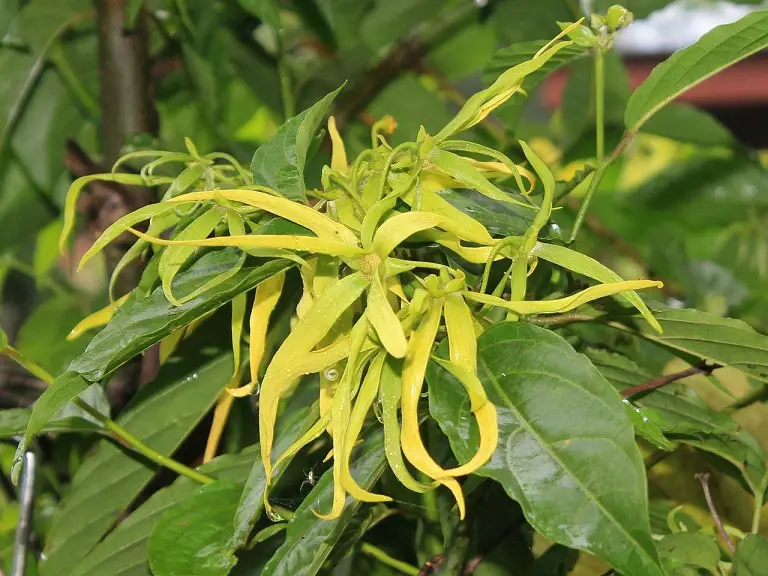
Image by Maya A. P from Pixabay
Ylang Ylang
Ylang ylang is from the flowers of the herb Cananga oderata and is a common ingredient in perfumes.
In a 2008 study by Moss, et. al. cognitive performance (thinking) was measured in (human) volunteers inhaling either peppermint or ylang ylang.
Peppermint enhanced memory and increased alertness, while ylang ylang did the opposite. In addition, ylang ylang increased calmness.
Likewise, in a 2013 study by Jung, et. al., healthy men who inhaled ylang ylang had a reduction in both blood pressure and heart rate, confirming that ylang ylang has a sedating effect.
Scent combinations
Combining scents is a popular approach. Together, some may even have a synergistic effect, or greater effect due to a positive interaction between more than one element. However, that’s difficult to test for.
Most studies evaluate an aromatherapy combination vs a placebo with no scent.
For example, in a 2019 study by McDonnell, et al. rehabilitating cardiac patients were given a cotton ball infused with a combination of lavender, bergamot, and ylang ylang to place at their bedside. Alternatively, they were given a placebo cotton ball with no scent.
Although sleep duration and latency did not change, sleep efficiency was better compared to when they used the placebo. In addition, they got up to use the bathroom less.
Because of the design, it’s unclear which scent, or combination of scents, is helping.
The placebo effect, and other limitations
One problem with this study, and ANY study involving inhaled scents, is that it is impossible to design a study with a true “blind” control. As a study participant, you will immediately know if you are being exposed to a scent or not.
This is different from ingested products, like the Silexan™ studies, which could be blinded as subjects were simply taking a capsule supplement.
Because of this, we can’t disregard the placebo effect. If you think you are doing something to make you feel better, you will feel better.
Keep in mind that essential oils, or any of these scents for the bath, are not regulated by the Food and Drug Administration or any other governmental regulatory body. Different brands vary drastically in their quality.
All the cited studies on inhaled scents used essential oils, which are a combination of plant-derived chemicals, with only a few that we identify as a scent. “Fragrance” found in other products may or may not contain these active chemicals.
A lavender-scented candle may not work like diffused lavender essential oil.
However, if something is relatively inexpensive and free of side effects, like a hot bath, then perhaps it doesn’t matter…
If something makes you feel better and relax, then common sense dictates that you will sleep better.
(The placebo effect is still very effective!)
I’m still going to dump everything into the warm water and enjoy my soak.
Want to learn more about the products mentioned?
[If you experience issues with menus or links not working, it is most likely due to your Ad blocker.]
